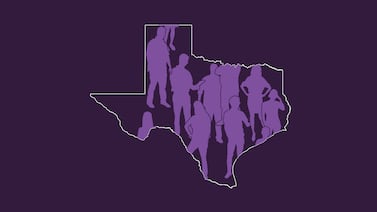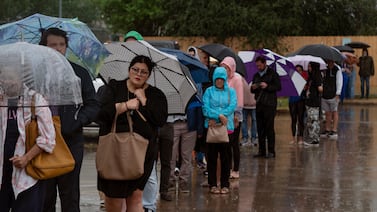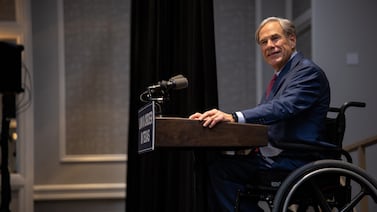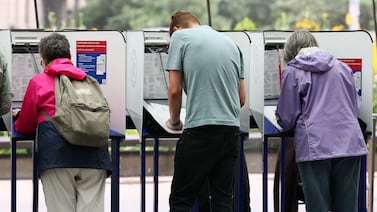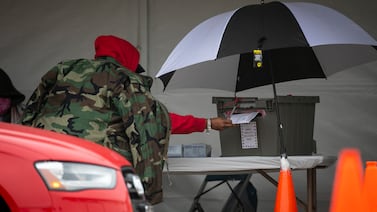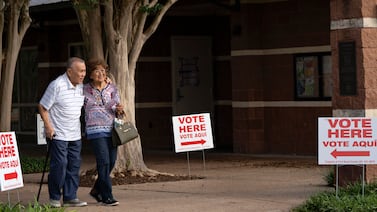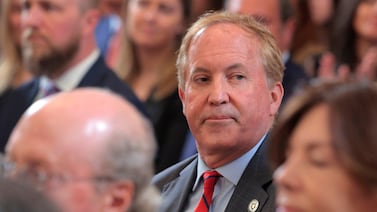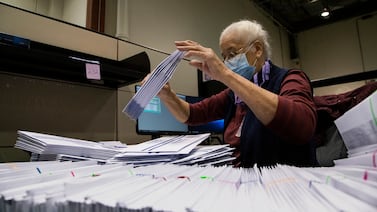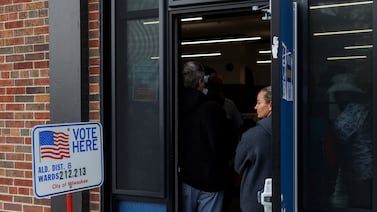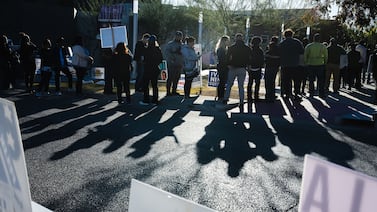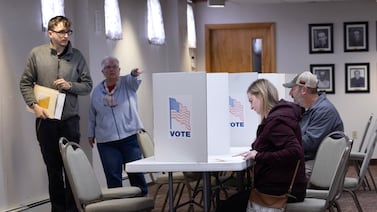Voting Legislation
A House hearing provided clues on what election laws Republicans are hoping to change.
GOP push to exclude some noncitizens raises questions over the future of redistricting.
Clerks were also pleased that Gov. Tony Evers vetoed a bill that they said would have increased lawsuits.
The proposed constitutional amendment would affirm that voters must be citizens, a requirement that’s already in state law.
State Rep. Scott Krug hopes to quiet the conspiracy theories and rebuild public faith — even if his proposals don’t make it.
A bill passed in the special session restores limits on voters who make last-minute address changes.
Ranked choice voting is still a new, unfamiliar concept for most Americans. Tell us your questions, so we can help you understand it better.
Federal appeals court upholds ID requirements for voting by mail
Groups like Rank MI Vote want the state to adopt the method that was just used in New York City’s mayoral primary.
Approved measures include a new early-voting schedule, revised mail-voting procedures, and curbs on curbside voting. But some major GOP priorities stalled.
Extra weekend hours could improve turnout, but election officials expect some challenges with staffing.
Ken Paxton sought more power for his office to take up election cases. But lawmakers haven’t agreed on a measure that would give it to him.
A new study looks at the effects of Senate Bill 1 on voter participation, including the rising ‘cost of voting’
Election officials had warned that the bill would be tough to implement
The bill’s author wants equal access for rural voters, but some clerks say the legislation’s 20-hour minimum doesn’t make sense for small towns.
Lawmakers hear arguments for revamping the state’s current paper-based system, including the threat of new backlogs if a proposed proof-of-citizenship requirement becomes law.
The bill fixes a 2023 law that created headaches for election administrators. It awaits the governor’s signature.
The measure includes in-person early voting and procedural updates for mail ballots that election officials have wanted for years. Its prospects are uncertain.
The legislation, passed by the House, is a response to threats and attacks against election workers, the bill author says. Critics warn about the risk of escalation, and voter intimidation.
The Michigan Election Security Act largely sidesteps the issue of noncitizen-voting, but sponsors say more targeted legislation is in the works.


